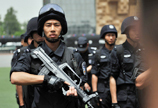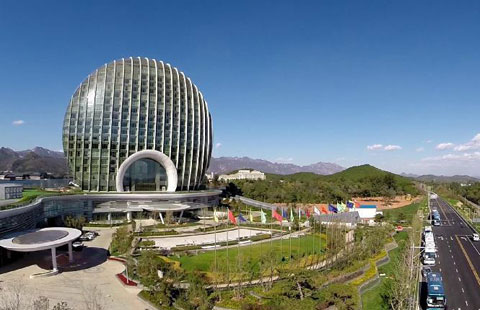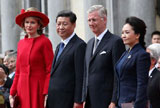Nations act to deny corrupt officials 'safe haven'
Updated: 2014-11-12 08:13
By Zhang Yan (China Daily)
|
||||||||||
The leaders of the APEC economies are committed to strengthening cooperation and coordination on the repatriation of corrupt officials and recovery of their illicitly acquired assets, according to an APEC economic leaders' declaration released on Tuesday.
The APEC economic leaders praised the strong resolve shown in fighting corruption, including through effective anti-corruption measures.
"We will work together to fight against corruption and deny safe haven for the corrupt officials and their transferred ill-gotten assets," according to the declaration.
Meanwhile, the leaders also support Beijing's declaration on fighting corruption and "will adhere to relevant Asia-Pacific regional laws to combat crimes of corruption".
In addition, where appropriate, they will make use of anti-corruption mechanisms and platforms, such as the APEC network of anti-corruption and law enforcement agencies, to fight corruption, according to the declaration.
In an earlier APEC ministerial meeting, the APEC members set up a law enforcement cooperation network to crack down on corrupt officials, Foreign Minister Wang Yi said on Saturday.
The network, known as Act-Net, will be based at the training arm of the Communist Party's Central Commission for Discipline Inspection, the top anti-graft watchdog, which will conduct initial investigations of corrupt officials and send them to judicial organs for charges when enough criminal evidence is in place.
"The network will use extradition, mutual legal assistance and the recovery and return of proceeds of corruption as the means to tackle graft across borders," according to a report in The Wall Street Journal.
Hong Daode, a law professor from China University of Political Science and Law, said that enhancing law enforcement cooperation among APEC economic leaders will deter corrupt officials.
In recent years, many corrupt officials have fled to the United States, Canada, Australia and some Southeast Asian and European countries to elude law enforcement officers, and police officers have faced practical difficulties in locating them, Hong said.
"After setting up an Asia-Pacific regional anti-graft network, the relevant economies will intensify cooperation to share intelligence information and case investigation and conduct joint operations to track down those corrupt officials and recover their assets," he said.









